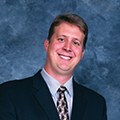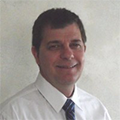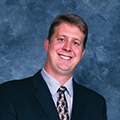2024 Practical Cupola Workshop
(Reedsburg, WI)
(at the workshop venue)

Pete Satre
Manager, Technical Services, Allied Mineral Products Inc., Columbus, OH

David J. Kasun
AFS Cupola Committee Vice-Chair; Technical Director, ATD Cupola Division, Au Gres, MI
- Basic cupola theory introduction, general melting principles
- Cupola design variations, examples of cost saving and performance changes
- Lined/unlined
- Hot/cold blast
- Above & below charge takeoff
- Spout designs
- Cupola zones (top gas, preheat, melting, combustion, well, tap and siphon)
- Coke combustion, Boudouaard reaction, gas chemistry, oxidizing-reducing atmospheres
- Mass energy balance principles
- Heat transfer in the cupola and charge material sizing
- Thermal efficiency, combustion air demand
- Effects of hot blast temperature, oxygen injection and humidity
- Tuyere arrangement, tuyere design, tuyere water cooling considerations (pressure, flow, instruments, leak detection methods)
- Iron dam height, slag layer depth and hearth pressure effects
- Cupola geometry considerations (blast ratio, preheat time, charge material sizing)
- Slag rate and fluxing
- Cupola computer simulation/modeling (Cup16)
(provided by AFS)

David J. Kasun
AFS Cupola Committee Vice-Chair; Technical Director, ATD Cupola Division, Au Gres, MI
- Charge makeup
- Basic properties of charge materials (surface area: mass, melting points, heats of fusion, slag generation)
- Thermochemical reactions
- Iron superheating and carbon pickup
- Slag chemistry, fluxing and slag rates
- Oxidation and reduction reactions, effects of gas chemistry on metallurgy
- Silicon losses/melt losses
- Well chemistry reactions
- Carbon pickup
- Silicon loss & recovery (FeO reactions)
- Effect of slag layer on carbon pickup, temperature, FeO interactions
- Well height/diameter- industry practices, effects & considerations

J.P. Kramer
Account Manager, Ferroglobe, Beverly, OH
- Standard Metallic charge materials
- Alternative materials, key points for running trials
- Avoiding Issues with Charge Materials (dirt, contamination, etc.)

Steve Hay
President, Hay Melting Solutions LLC, South Lyon, MI
- Heating value, properties & characteristics
- Principle of physical and chemical properties in the cupola

J.P. Kramer
Account Manager, Ferroglobe, Beverly, OH
- Natural (high purity)
- Briquetted materials (FeSi, SiC, FeMn, etc)
- Injection grades (Carbon, FeSi, SiC)
- Limestone/Dolomitic Limestone (properties, purity, sizing)
- Alternative fluxes (calcium carbide, fluorspar)
J’s Pub & Grill
280 Viking Drive
Reedsburg, WI 53959

David J. Kasun
AFS Cupola Committee Vice-Chair; Technical Director, ATD Cupola Division, Au Gres, MI

Alex Croll
Director - Melt Materials & Technology, Waupaca Foundry Inc., Tell City, IN
- PPE for various jobs
- CO hazards/monitoring, meter types and locations
- Confined space
- Charge area
- Securing area during tap out, bottom drop, regular operation
- Furnace water leaks
- General water hazards
- General discussions/topics
Jim Wright
Melt Manager, McWane Ductile, Coshocton, OH
- Start-up checklist, tools, safety equipment, PPE, procedures
- Bed coke selection
- Coke light off and measurement
- Safety tuyere operation, discharge and drop area preparation
- Charging, startup special charges
- Blast On
- Tap out procedures & safety (open vs. closed taphole)
- Preparation for extended campaigns
- What to do when problems occur
- Charge changes, blast and oxygen settings –associated issues, considerations & quantitative/qualitative results.
Travis Schlabach
Melting Supervisor, McWane Ductile, Coshocton, OH
- Special burndown charges/metal types/coke rates
- Blast/Oxygen Settings
- Watching backpressure/preparing for drain
- Blast usage/purging options during drain down
- Iron saving practices for drain
- Draining the cupola/drain boxes-drain bed
- Safety considerations

Lyle Heberling
Executive Director, Iron Casting Research Institute, Columbus, OH
- Chemistry Control, operator adjustments (blast, oxygen, charge recipe, spout additions)
- Iron and slag sampling and testing (chemistry and temperature)
- Cupola operation relationships to chemistry and temperature
- High/low bed
- Charge material weighing precision
- Metallic and alloy quality and consistency
- Weigh compensation
- Slag Control (basicity, color, testing, quantity)
- Optimizing costs, special charges, transition charges
- Least cost standard charge (consideration of hidden costs and melt losses)
- Record keeping, reporting
- Automation and data collection, reporting

Alex Croll
Director - Melt Materials & Technology, Waupaca Foundry Inc., Tell City, IN
- Lowest cost charge recipe calculations
- Metallurgical and chemistry calculations
- Melt loss calculations, methods to verify losses
- Oxidation loss calculations and optimization methods

Eric Gokey
Melt Department ManagerCadillac Casting, Inc. Cadillac, MI
- Tuyere and shell water leaks – detections and reactions
- Blast/O2 adjustments for HI/LOW bed situations
- Blast/O2 tricks for testing coke bed level
- Humid coke and Wet Coke adjustments
- Other troubleshooting tips
Mark Muszynski
Senior Metallurgical Engineer, Reno Refractories, Morris, AL
Pete Satre
Manager, Technical Services, Allied Mineral Products Inc., Columbus, OH
- Lining material selection – various zones of cupola
- Chemical, slag and temperature corrosion of linings
- Refractory properties and physical characteristics
- Refractory – Complete Installation and Mid-Campaign Repairs
- Inspecting and removing old refractory
- Options and varieties of lining materials
- Taphole and separator repair
- Setting elevations, setting the dam and slag notch, gauges
- Dam height/slag notch control
- Optimizing refractory performance in each zone of the cupola.
- Dry-Out
- Extended campaign practices, issues, considerations & quantitative/qualitative results

David J. Kasun
AFS Cupola Committee Vice-Chair; Technical Director, ATD Cupola Division, Au Gres, MI
- Oxy Fuel (NG) burners/Oxy Solid fuel burners
- Plasma superheating
- Alternative fuels (coke supplements)
- Waste Heat to Energy/Waste Heat Re-use technologies
- Electric generation
- Building heating/domestic hot water and process heating
- Dehumidification and other process heat re-use
- Carbon sequestration technologies
- Incentive tax credits
Panel Discussion
Open discussion for specific or general topics in troubleshooting, design, operation, safety, or any other topics as determined by the students. On the first day of the class, students will be asked to submit questions that will be addressed and reviewed by the panel of all speakers.
Reedsburg Country Club
3003 E. Main Street
Reedsburg, WI
(Reedsburg, WI)
(at Grede Foundry training room, main office)